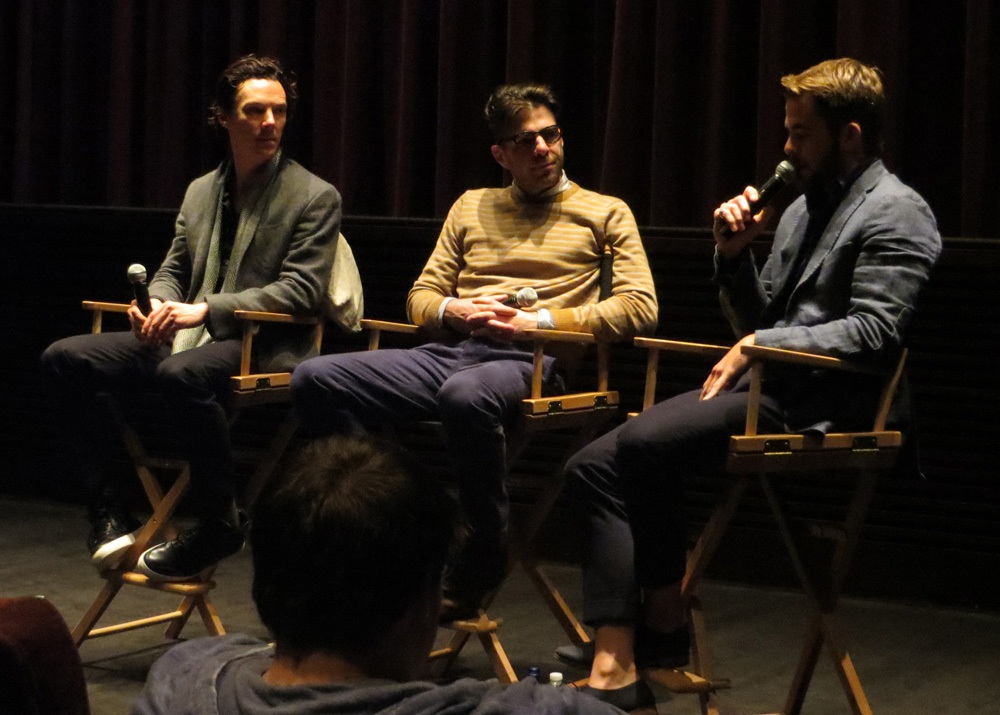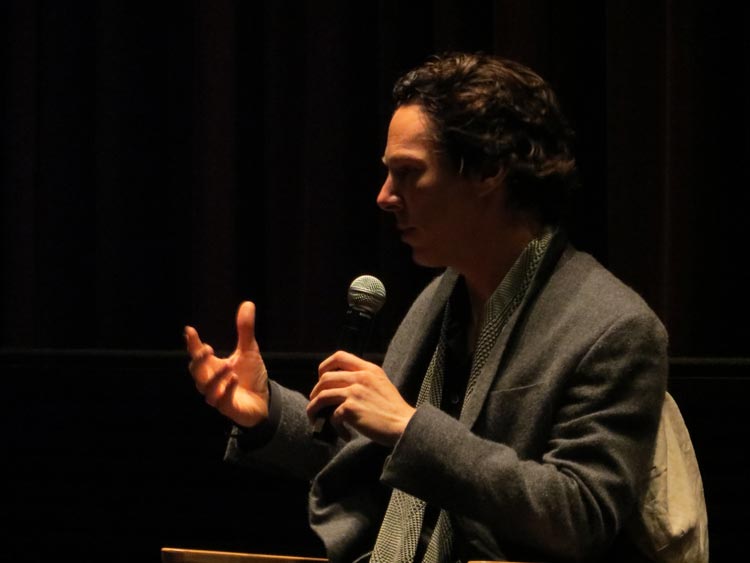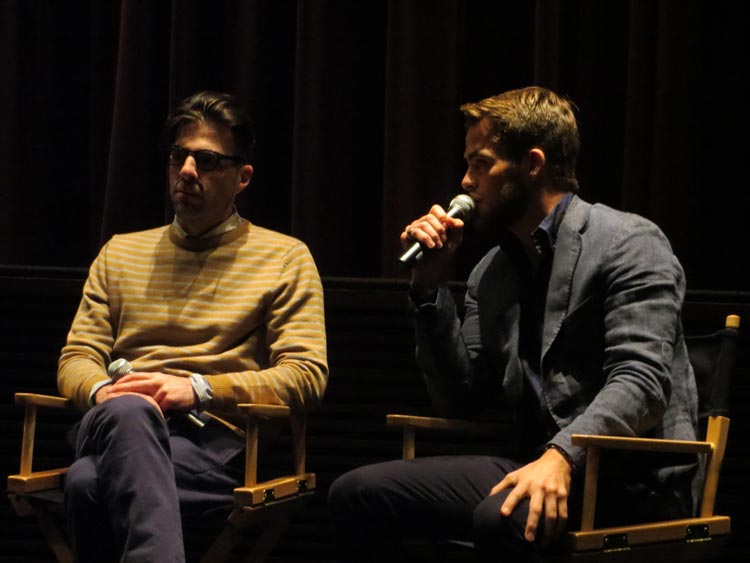The following questions and answers are excerpted from a conversation that followed the NBR screening of Star Trek Into Darkness.
Why do audiences love Kirk and Spock so much? What gives their relationship such dynamism?
Pine: I think the Enterprise represents, psychologically speaking, parts of one person. I always think of the triumvirate of McCoy, Kirk and Spock as representing parts of a single human being. You have the irony and humor of Bones, the passion and heart of Kirk and the reason of Spock. Above and beyond the obvious connection to our own lives – we’ve all watched friends and family go through personality conflicts and struggles – I also think there’s a deeper subconscious thing happening, where you’re looking at yourself doing battle. It’s that internal battle that I think we all have going on between the mind, body, heart, and reason.
Quinto: Those three characters represent a balance that’s an ideal – and pretty well unattainable, I think – in our own lives as individuals. But there’s a lot of magnanimity in it. They’re people who care deeply for one another, but also for the people they’re responsible for and the people who work with them. If the crew of the Enterprise functions as parts of one person, I think that person is Gene Roddenberry. Before getting involved in this franchise I never had an appreciation for this, but once I had a chance to see it up close, I was able to cultivate a deep appreciation for the idealism and faith in humanity he put into his work. And I came to have such a high level of respect and admiration for the characters, just like all the people who have loved them for almost fifty years. Because the characters are reflecting something good back at you, at their core, even though the world itself is challenged, and dark, and all of that; that’s why the franchise is so enduring.
“I wanted him to sound and move as though he were a little bit constructed, a little bit test-tubed”
How did you approach playing such an important villain in the Star Trek universe?
Cumberbatch: I wanted to try to give him a voice that had something almost reptilian to it. I wanted to create a feeling in which he’s either in a mode of action – where everything is very electric, sudden, and violent… really violent – or that if he’s not, that he’s almost cold blooded when he’s in repose. Almost like an animal in a state of deep stasis. And in that resting state, his body is functioning at a very high level: his eyes glaze over, his voice modulates, and he’s calculating… but to an outside observer he just appears slow. I wanted him to sound and move as though he were a little bit constructed, a little bit test-tubed, if you will, rather than someone who had a specific ethnicity or background.
How did your performances in Star Trek (2009) influence how you approached this film?
Quinto: So much was different about this movie. I had to go more physically into this role; my relationship to the physicality of the character was a little different. I watched the first movie about a month before we started shooting this one, just to get a frame of reference and to be reminded of certain choices I had made regarding the character.
Pine: I looked at this film with fresh eyes. Ultimately, the script is your bible and you try to bring life to that. There’s such an indelible mark made on the character through the first film, and I do feel that Kirk resonates within me, so I didn’t do much looking back. And also, I hate watching myself, so that wouldn’t have been a good choice for me! Much better to approach this piece separately.



